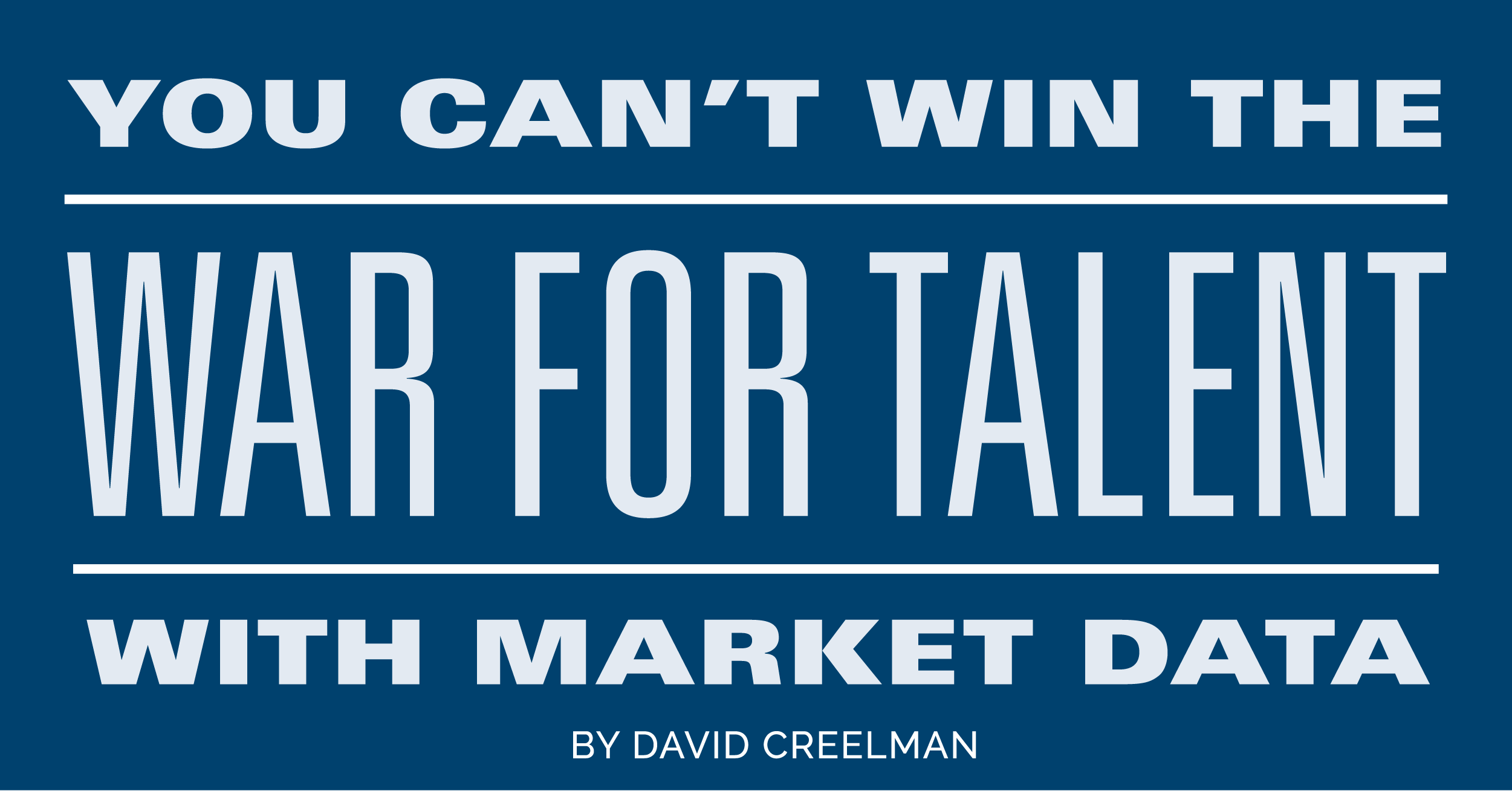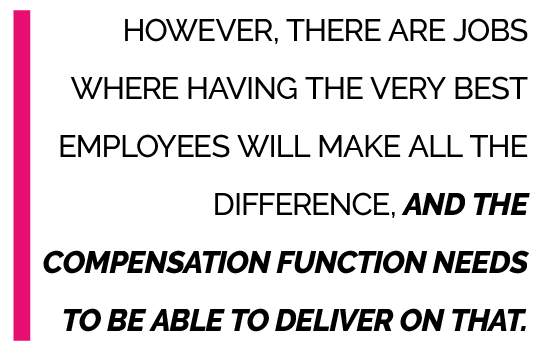
Playing offense in compensation means winning the war for talent. It means acquiring, motivating, and keeping the best people or people with scarce skills before the competition can. You don’t achieve this with a focus on market averages. Sometimes the right strategic move is to pay far above it.
You can’t pay everyone far above the market average, so you need to focus on what John Boudreau and Peter Ramstad call “pivotal jobs.” A pivotal job is one where an increase in the quality or quantity of talent will significantly impact the execution of strategy. For example, in a pharmaceutical company racing to develop a new vaccine, having the best scientist, rather than the second-best, might make all the difference. What you pay that best scientist will have little to do with what average scientists make. Sometimes the issue is not quality of talent but quantity. If your go-to-market strategy requires large numbers of hard-to-find technicians, then these jobs are pivotal, and the compensation program should go to battle to win the war for this scarce talent.
The weapons in the compensation war are the usual ones: base pay, incentives, benefits, and work perks. To win the war for pivotal jobs, you need to be able to offer rewards far outside the market average. The difficult step in doing so is identifying which jobs are so important that they should get special treatment.
The notion of special treatment shouldn’t sound odd. Organizations already give some jobs special treatment when it comes to compensation. It’s not uncommon to see sales roles where the incentive structure allows top performers to earn far more than the market average. In regards to executive compensation, companies are often willing to pay whatever it takes to get the CEO they feel they want. Steve Jobs famously said the best software engineers were 50 to 100 times better than average, and some of the salaries in Silicon Valley reflect this.

After identifying pivotal jobs, there needs to be a project team within the compensation function that can apply special rules to these roles. It’s a delicate business to pay some people outside the normal compensation structure, so companies need to put wise and experienced HR professionals on that team. In particular, you need incentive compensation professionals who can work with the direct managers to craft an effective incentive plan.

It is true that it is easier to have a machine-like compensation program where compensation pros can put their heads down in spreadsheets and work by paying everyone fairly based on market data. That can make sense for the majority of jobs. However, there are jobs where having the very best employees will make all the difference, and the compensation function needs to be able to deliver on that. Take the time to identify pivotal jobs and give a compensation team the flexibility they need to craft a reward package that will attract them. ⬤

